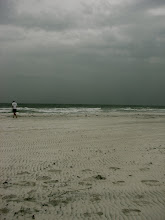I was never much of a baseball person. My father was not a fan, I was not a fan, I didn't toss the ball around much or favor an old glove--none of that stuff. I recall in Johnson City, Tennessee I decided to try out for Little League: I signed up, my father took me to the try-outs (or whatever they were) and it was crowded with kids, we stood around and I looked around, there were so many kids, and I told him to forget about it and we went back home.
When we moved to Iowa, to Urbandale--a suburb of Des Moines--I was the new kid once again. I'd started school halfway through the year. Down the block there was one kid my age named Bob and we struck up a semi-friendship. he knew a group of kids from around the immediate neighborhood--most a bit older, some in the same class as us--and he invited me to play baseball with them at a field behind Jensen Elementary School, which was close to our street, just across Aurora Avenue. So, I went.
I played horribly. I was athletic but I could hardly hit. I let ground balls roll between my legs, I was timid and uncertain in the infield, misjudged balls in the outfield. They other boys laughed at me. I took it in stride, told them I was better at football, but still, it stung a bit--like I said, I was the new kid.
(I had plenty of experience being the new kid--I'd been in five different schools by then, in four different states ranging from South Dakota to Washington to Tennessee and now Iowa.)
I just didn't have any baseball skills. I was also into the beginning of my adolescence so some of the confidence that used to come naturally to me was now failing, diminishing, leeching out of me and being replaced by I didn't know what. But I soldiered on with bat and glove and (over the years, not the summer of 72) I got better. I also came to understand the game of baseball better. I really didn't take an interest as a fan until much later, in the 80's, when I made up my mind to follow the Chicago Cubs one year and asked my very good friend Kevin to teach me why people liked baseball so much. And it wasn't until the 90s and 2000s that I finally got it.
But anyway. After my baseball fiasco, where I was pegged as the clumsy kid on the block, not too long after that, Bob came and said they were going to play football behind Jensen. "Okay," I said, eager. And off we went to the school, Bob and I, Blair, the McIntire brothers, Scott Oaken and maybe one or two others (I'm surprised I can recall these names). We stood there in the grass and the two eldest picked teams.
I was the last one chosen.
But as the game began--we played two-hand touch--the team that didn't pick me soon regretted it. I can to this day still recall the catches I made, the runs, interceptions and touchdowns, the surprise on the faces of my more-or-less-peers. I was tall and fast, confident, had sure hands and quick reactions. I had football skills. And from then on I wasn't the clumsy kid anymore.
I still played sandlot baseball, but among the group of friends--good friends--I fell into and acquired over my years in Urbandale, football was the game we played. It was the most important. We came to mainly play at Lions Park, just across the road from Urbandale High. The games were great fun and full of exercise--I recall years later I happened to meet an ex-Urbandalite and he said he remembered seeing us play football in the park; he had been a pothead, essentially, and he told me he couldn't understand how we could just play football and have fun and not be stoned or drink or whatever, said it in a wistful way almost, as if he regretted not being so simple or smart . . . And I am glad I played all those games, that I did not learn to drink and smoke until much later in life. I believe I built up a very healthy base for myself physically by being so simple and semi-innocent, by playing sports and riding my bike, building myself up (innocently enough) in those years when your body is still growing, your brain still developing. I can say that, at least.
I played a lot of basketball, too. And baseball--which is what this post was supposed to be about. But, as you can see, even a post about baseball becomes one about football. Football was very important to me in those years--not organized football, not the high school team, but just sandlot, just among friends. All of that was very good.
